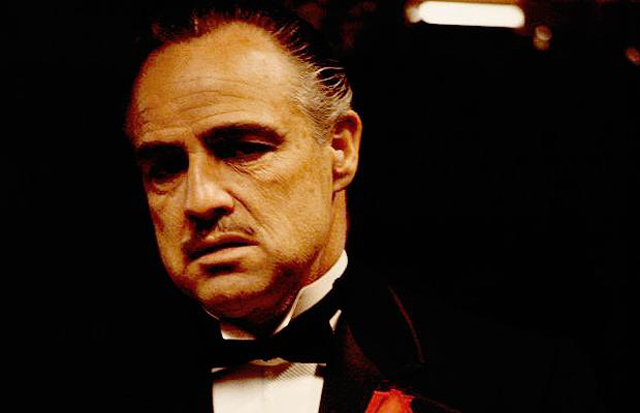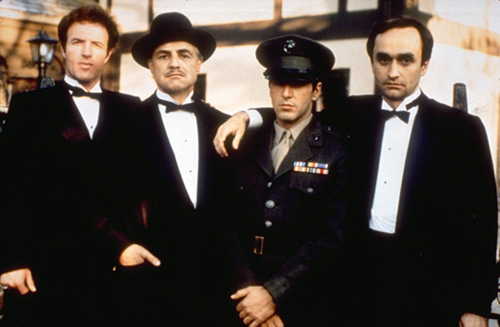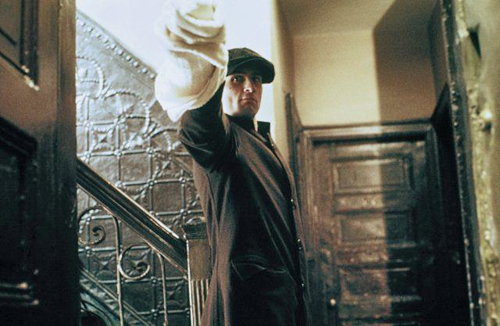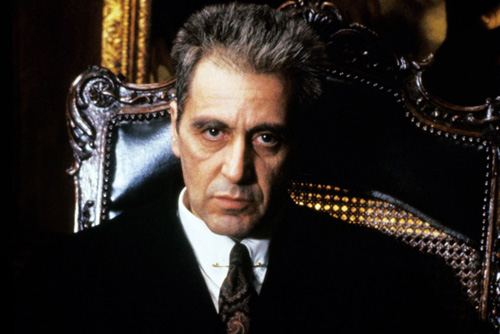
As we enter the homestretch of Awards season, you hear a lot of complaints about how the committees in charge of selecting the winners of these selected awards tend to be a little snobbish. We’re hearing those complaints again, only this year they are in response to the perception that the Academy is too exclusionary to non-white actors and filmmakers. Not to delve too much into the current controversy, but there is truth into Hollywood’s sometimes narrow minded view of what’s deserving of awards and what’s not. But, it’s not exclusive to just films that come from people of different backgrounds. The Academy Awards have long had the reputation of excluding what you would call genre fare in favor of classier entertainment, favoring prestige over box office value. That’s why many of the big winners over the years have tended to feel out of touch with the public perception, and many of the choices now seem perplexing in retrospect (How Green Was My Valley over Citizen Kane, Ordinary People over Raging Bull, etc.). But there are thankfully genre films that are so monumental that even the Academy can’t dismiss them and they’ve managed to cross the threshold and gain their genre the recognition it deserves. We’ve finally seen over the years the Academy honor the Western (Unforgiven) the horror film (The Silence of the Lambs), and even fantasy (The Lord of the Rings: The Return of the King). But, even more remarkable is when Hollywood can overlook the fact that some of these movies are also part of ongoing franchises, ignoring the whole name recognition and just honoring them as singular cinematic achievements. And this is especially true for the only time that a movie and it’s sequel have ever triumphed at the Oscars; those being the first two films in The Godfather trilogy.
The Godfather trilogy is one of cinemas most beloved and unexpected franchises. However, calling it a franchise is often disputed by some critics, who view the different movies as a singular narrative; which can be argued given that the first two movies are both sourced for the most part from the novel written by Mario Puzo. But, despite that fact, each film in the series is unique and continues the story in it’s own distinct fashion. And, especially with the first two, it would become of the most monumental pair of films in cinema history. The movies were made during the renegade early years of the 1970’s, when studios were allowing for a lot more creative freedom to their filmmakers, many of whom were breaking new ground with the kinds of stories being told and the kinds of film-making styles being used. One of the artists that emerged from that class of film-making was Francis Ford Coppola. The Italian American director started off as a screenwriter in the industry and he ended up winning an Oscar for writing Patton (1970). Soon after, he was given his first opportunity to direct and he chose a story that was close to his own roots as a descendant of Italian immigrants to America. Puzo’s The Godfather was a huge best seller when it was first published, chronicling the highs and lows of the fictional Corleone crime family. What Coppola found in the novel was this grand sweeping tale of the immigrant experience in America as well as it’s unfortunate ties to the Mafia, and as a result it becomes the quintessential story of America in itself. In this article, I’ll be looking at all three films of the Godfather trilogy, and how each built upon this magnum opus from it’s larger than life director.

THE GODFATHER (1972)
Well, what can you say about The Godfather that hasn’t already been said. It’s a classic in every possible way and rightfully has earned it’s place as one of the greatest movies ever made; if not the best. Everything about this movie is iconic to this day: the lush and often gritty cinematography by Gordon Willis: the endlessly charismatic Oscar winning performance by Marlon Brando as Don Vito Corleone; the unforgettable transformation of Al Pacino’s Michael Corleone; the endlessly quotable dialogue. Nearly everything in this movie has become ingrained into our culture and we are all the better for it. The Godfather is a movie that illustrates the pinnacle of what film-making can do, and it came at a time when Hollywood really needed it. During the tumultuous counterculture movement of the 60’s and 70’s, Hollywood was desperate to find an identity that was in tune with the changing times. With The Godfather, they found a movie that spoke to the new generation while still maintaining a certain bit of old Hollywood prestige. I think the thing that makes Coppola’s movie so brilliant is it’s earnestness. Up until that time, Gangster pictures were often played over the top and were dismissed as purely sensational genre fluff. The Godfather plays with the Gangster flick, and portrays that world in the most realistic sense possible. It’s not sensationalized or glamorized. It merely shows us what that world was really like, warts and all. At the same time, there’s also a truthful current of the importance of family and how morality becomes relative when the law is corrupt and the criminals are more or less responsible for building up our society. That’s the brilliance in storytelling that Coppola brought out in The Godfather.
But, what people remember most from this movie is the progression of the characters, and in particular, the evolution of young Michael Corleone. Yeah, Brando’s Vito is the face of the franchise, but Michael is the focus and his story is the most remarkable thing about this franchise. When we first see Michael at the wedding of his sister Connie (Talia Shire), we see an all-American boy who’s managed to escape the shady family history in order to become his own man. But, as the film progresses, Michael is plunged back into the world of crime after a few tragedies befall his family; the first being an attempted assassination of his father, and the second being the brutal massacre of his older brother Sonny (James Caan), who was supposed to be the true heir of Vito’s empire. Michael at first reluctantly returns to this world of organized crime, but with every step he takes, he delves deeper into what he’s capable of, becoming more ruthless and unforgiving, and by the end, he has risen to the top of this empire that he originally wanted no part of. Coppola takes us on this character journey in a grand and passionate way. Michael doesn’t just become a criminal, he is shaped by moments that form his character, and in him we see a reflection of what this kind of life could do to a person. In particular, the brilliantly staged restaurant scene where Michael commits his first murder and the stunning and groundbreaking Baptism montage at the end, both showing us the pivotal shifts in Michael’s character, and both are brilliantly performed by Pacino. All of these elements make The Godfather the monumental epic achievement that it still is today, and it greatly established Francis Ford Coppola as one of cinemas most unique voices.

THE GODFATHER PART II (1974)
The Godfather would go on to be a box office success and would win multiple Oscars for Picture, Actor (Brando) and Screenplay; though strangely not for Director (Coppola lost to Cabaret‘s Bob Fosse). Amazingly when studio Paramount asked if there was a chance to sequelize the film, Coppola actually agreed to it. Usually a prestige film that wins multiple Oscars will be left to stand alone, but Coppola knew that there was plenty of story left in Puzo’s novel that he had to leave out in the first movie that he could still draw from. Not only that, but thanks to the goodwill he generated from the first movie, Coppola could not only make a sequel, but he could make it bigger than ever before. The Godfather Part II is epic in every way, and many regard it the best film in the franchise, and that’s a sentiment that I quite agree with. It doesn’t have as many of the instantly recognizable iconic moments as the first Godfather, nor the novelty of being our introduction into this epic tale, but it makes up for it in the sheer scale and spectacle of it all. It’s The Godfather brought to it’s full potential. What I love best about the movie is not just the story, but the way that it’s presented. We follow up the story of Michael Corleone where it left off, as he continues to deal with competing forces in the crime world, but that is paralleled with the story of his father Vito as a young man; played this time by then newcomer Robert DeNiro, who won a Supporting Actor Oscar for his work. The parallel stories are both fascinating, especially when contrasted with one another; Vito’s rise clashed against Michael’s fall.
One other thing that I think is an improvement from the previous film is the way the supporting cast is integrated into the story more. Robert Duvall’s Tom Hagen in particular gets much more screen-time, as does Diane Keaton as Michael’s long suffering wife Kay, who also manages to get the ultimate revenge on Michael in the end. But, the true revelation in the cast is John Cazale as Fredo. Here we see one of the most interesting developments in the Godfather saga as Michael’s elder brother betrays him behind his back and it ultimately leads to probably Michael’s most brutal act of all in this entire series when he retaliates. Cazale perfectly captures the spitefulness and insecurity of Fredo, and makes him one of the most interesting characters in the whole story. Newcomers Lee Strasberg and Michael Gazzo also add great support in the roles of Hyman Roth and Frankie Pentangeli, two men who become obstacles to Michael’s rise in power in different ways. But, of course, Pacino still owns every moment he inhabits in this movie, and watching him turn Michael into an unforgiving tyrant is chilling. Coppola also takes advantage of the larger canvas that he’s given. The Godfather Part II utilizes it’s locations much more effectively than the modest budgeted first film did. In particular, the period detail put into the turn of the century New York City scenes with young Vito is amazing. The iconic rooftop scene is still a masterpiece of staging, as is the stairway assassination moment that follows it. The Godfather Part II proved that even prestige films could spark a franchise, and both parts of the Godfather feel like a complete realization of this amazing tale. The film would become the first ever sequel to win Best Picture at the Oscars, and Coppola would also finally be recognized as Best Director as well.

THE GODFATHER PART III (1990)
For many years thereafter, Godfather Parts I and II were seen as one of cinemas greatest achievements; a double feature narrative unlike any other. And for many years, it was thought that the narrative that Coppola wanted to tell was open and shut; that there was nowhere else to go. That was until Francis Ford Coppola announced that he was creating a third Godfather. A lot of people doubted that it could be pulled off, especially considering that it had been over 15 years since Godfather Part II had been made and that those films had gained iconic status by this point. Coppola was also going through a rough patch in his post-Apocalypse Now (1979) years, making diverse and uncharacteristically less successful choices in projects like One from the Heart (1981), Peggy Sue Got Married (1986) and Tucker: The Man and His Dream (1988). Still, he managed to convince Paramount to green-light the project and he got back most of his key players, including Pacino returning as Michael. The film had all the right elements in play and a lot of potential behind it once it made it’s way to theaters. Unfortunately for Coppola, all the goodwill he earned for the original two Godfathers didn’t help him much. The film received a very mixed reception from both fans and critics, and those who hated the film were especially livid by what they had seen. They saw the movie as a betrayal and have since labeled Part III as one of the worst sequels ever made. But, is it really that bad?
I think one of the reasons that the response to this movie was so extreme was because of how beloved the first two were. The iconic nature of Parts I and II set the bar extremely high, and it is impossible for any film to match it. So, is it the worst sequel ever made? I don’t think so, but it’s nowhere near as good as the first two either. I merely see the movie as being just okay. It’s well made and does feel like a Godfather movie for the most part, but it’s also sadly very forgettable too. There’s no iconic moments that I can remember and overall I feel like this was just a superfluous story not really worth telling. Coppola’s just rehashing things that made his Godfather films memorable before, but adding nothing new to it. Most of the hatred aimed at this movie seems to stem from Coppola’s terrible casting of his own daughter Sofia in the key role of Michael’s daughter Mary, and yes she is pretty terrible. We would learn in the years after that Sofia Coppola would better follow in her father’s footsteps as a director and not as an actor; the response to her acting here possibly influenced that career change too. But, as bad as Sofia is, I feel that the movie still gets some worthwhile performances overall, especially from newcomer Andy Garcia as Vincent Mancini, bastard son of Sonny Corleone, who proves to be a valuable ally over time to Michael, and possibly an heir. Talia Shire’s Connie also returns and has her character come full circle, becoming just as ruthless as her brother. Pacino doesn’t have as great of a role this time as the older Michael (given how Part II perfectly rounded out his character) but his performance still feels genuine, and he does manage to lay to rest Michael’s story in a convincing way. Does The Godfather Part III betray the series as a whole. I honestly think that seen together with it’s counterparts that it does hold up as part of the complete experience; it’s just not as strong as the rest of it. It can be ignored if you prefer the classics, but it’s also not even remotely a betrayal of the series. It’s just an extended epilogue, and nothing more.
So, overall the Godfather trilogy is a collection of one amazing two part story, and one polarizing final chapter. Regardless of how well the entire experience holds up, there’s no denying that Francis Ford Coppola’s epic trilogy is one of cinema’s most monumental achievements. It would go on to influence so much of film-making in the years to come, pushing the boundaries of what kind of stories you could tell and how much the filmmakers can get away with in terms of language and violence. Numerous filmmakers today look to The Godfather movies as an inspiration and you can see it’s fingerprints just about everywhere. The films of Martin Scorsese owe a lot to the success of The Godfather, and I’m sure that there wouldn’t have been as much interest in the history and influence of the mob in America reflected in movies like Goodfellas (1990) and The Departed (2006) had Coppola not popularized it first. Popular shows like The Sopranos and Boardwalk Empire also owe a lot to The Godfather as well, and in some cases even share a cast member or two (Godfather Part II supporting actor Dominic Chianese “Johnny Ola” would play the pivotal role of Junior Soprano in the hit show). And to this day, we still quote this movie endlessly whenever we tell someone to “make an offer he can’t refuse,” or say that someone “sleeps with the fishes.” The Godfather has held up well over the years and will continue to stand as one of cinema’s crowning jewels. And it also proved that the Academy can sometimes overlook it’s strict standards and embrace a franchise film every now and then. It just has to be a movie so good that it can’t be ignored anymore.